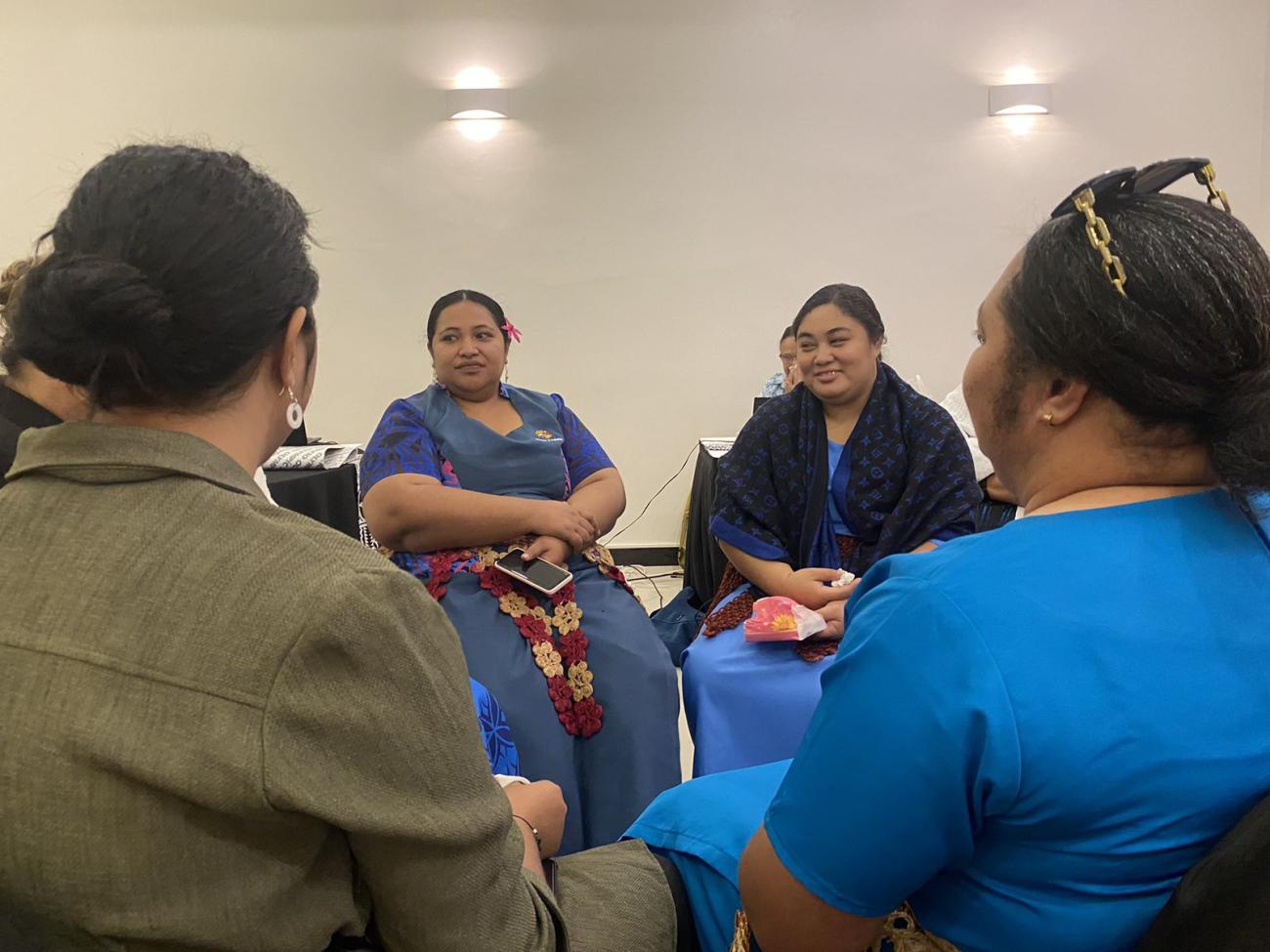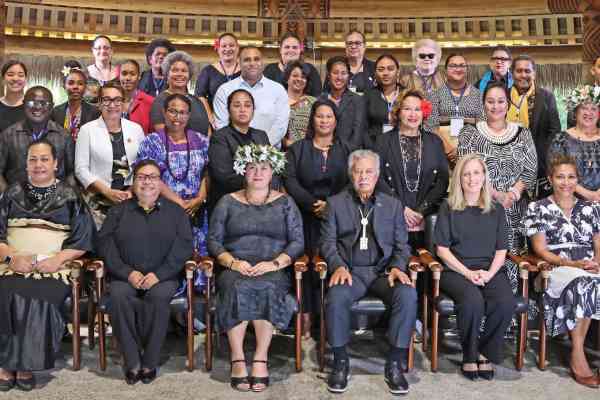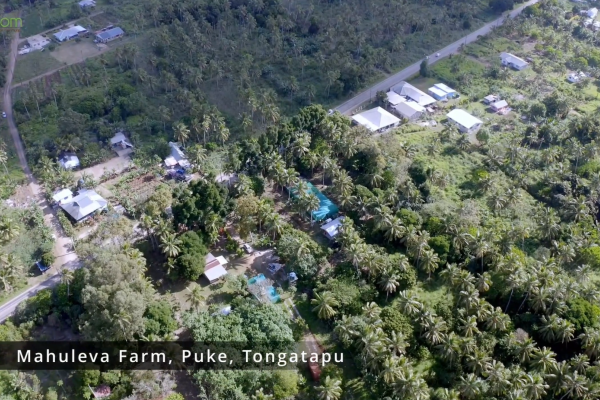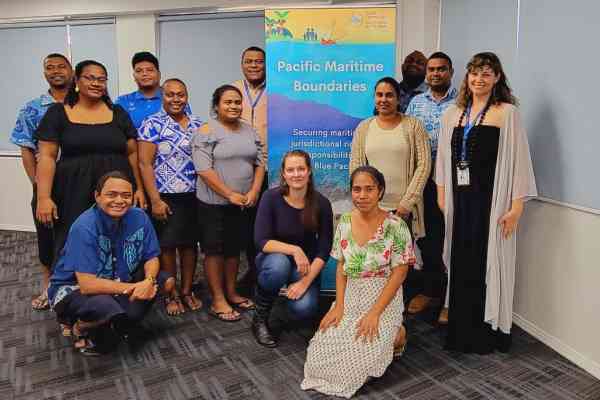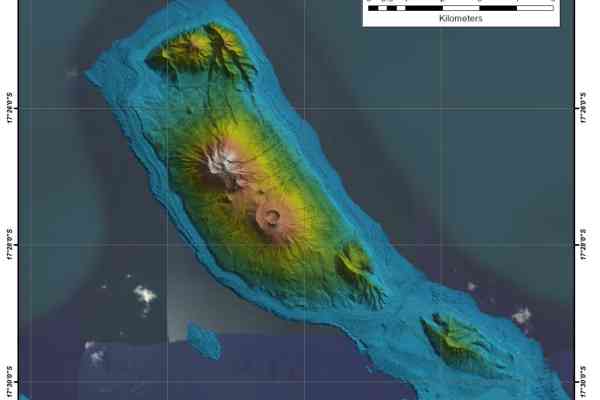(contenu disponible en anglais uniquement)
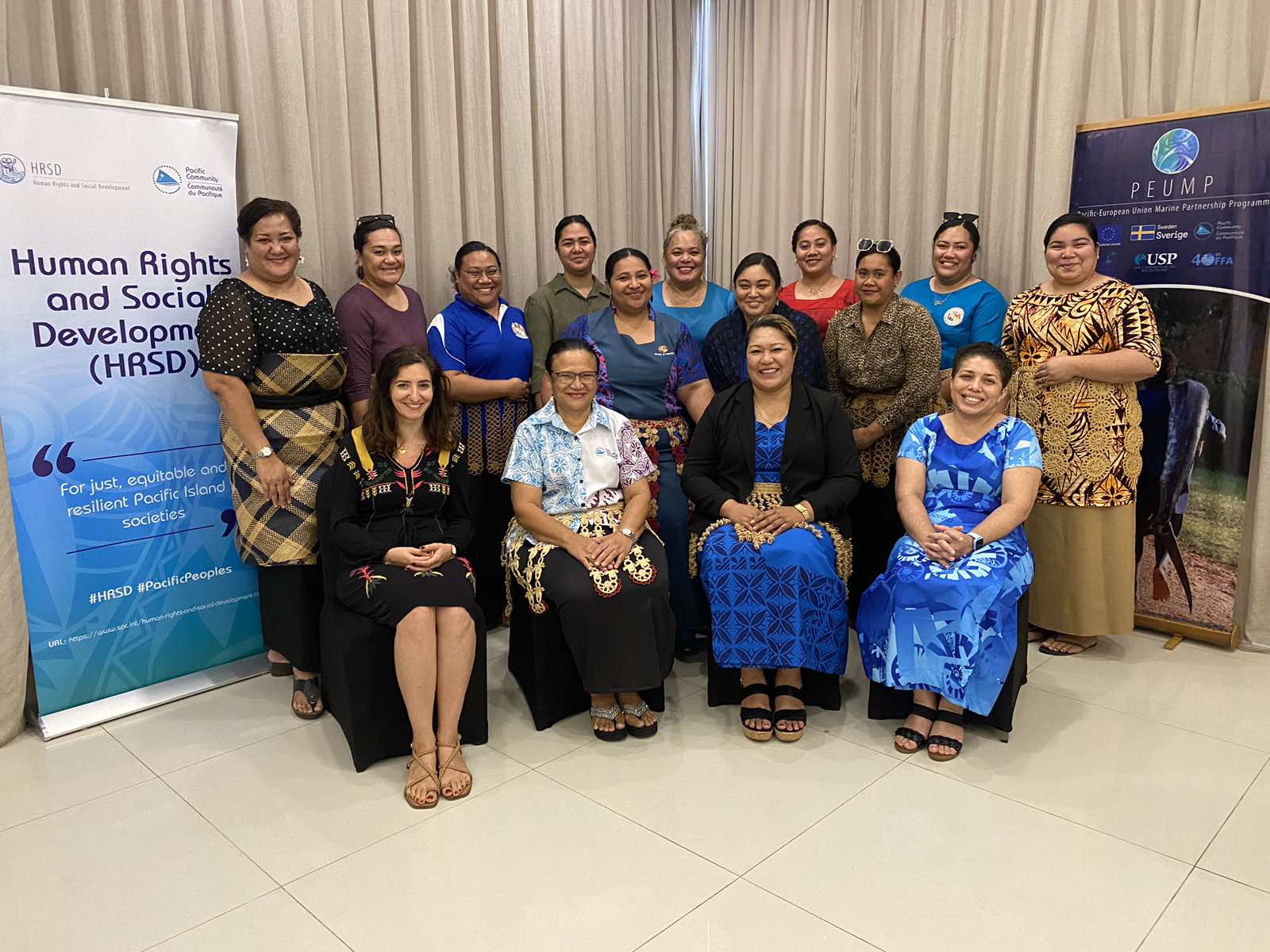
Nuku’alofa, Tonga – The Pacific Community (SPC), through the Pacific-European Union Marine Partnership (PEUMP) programme, spearheaded a Gender and Social Inclusion (GESI) Training at the Tanoa Hotel, Nuku’alofa in Tonga from 22 to 24 August 2023. The training involved officers from the Ministry of Fisheries, Tonga and aimed at applying gender equity and social inclusion lenses in fisheries, focussing on coastal fisheries working with the Special Management Areas programme.
The PEUMP programme, funded by the European Union and the Government of Sweden, has been supporting Pacific Island countries (PICs) to strengthen their capacity to lead and support gender-sensitive and socially inclusive approaches, to apply and integrate GESI lenses at the institutional level and in the design and implementation of interventions.
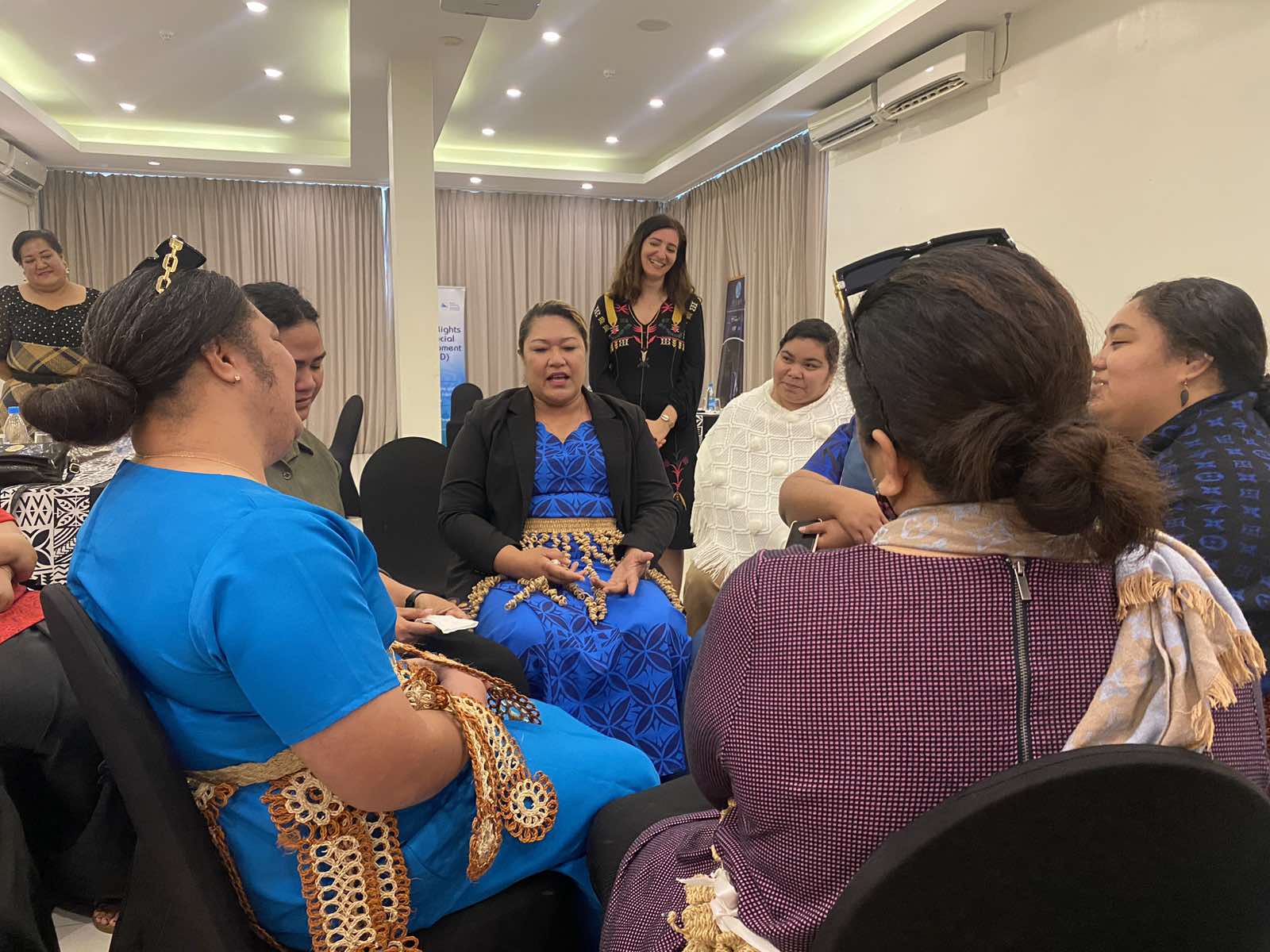 While opening the training, Deputy Chief Executive Officer for Corporate Services of the Ministry of Fisheries, Tonga, Ms Elaine Havealeta, said GESI mainstreaming is a national goal that will allow Tonga to progress its commitments in achieving overarching objectives related to poverty reduction, close inequality gaps and create an inclusive society where all Tongans no matter their gender or their social status can use their full potential to benefit from marine resources equitably.
While opening the training, Deputy Chief Executive Officer for Corporate Services of the Ministry of Fisheries, Tonga, Ms Elaine Havealeta, said GESI mainstreaming is a national goal that will allow Tonga to progress its commitments in achieving overarching objectives related to poverty reduction, close inequality gaps and create an inclusive society where all Tongans no matter their gender or their social status can use their full potential to benefit from marine resources equitably.
Ms Havealeta said, “Coastal fisheries and aquaculture are the lifelines for many Tongans who rely on marine resources to put food on the tables, to generate income, or to keep alive our traditional cultural heritage as people of the ocean. The Ministry of Fisheries is proud of its Special Management Area (SMA) programme that enables communities to be drivers of change in managing their resources. However, we need to better understand constraints and barriers that may leave behind certain groups in the community when it comes to decision-making, management activities and fisheries development services.”
SPC Country Focal Officer in Tonga, Ms Siueli Eleni Mone, was pleased with the objectives of the training, which also included women’s empowerment. She emphasised that women’s empowerment is crucial because the fisheries sector is still perceived as male-dominated.
She highlighted how empowerment can boost female fisheries officers' confidence and self-esteem while also understanding that women in the communities face similar challenges when it comes to decision-making and partaking in fisheries management activities due to the lack of empowerment within the cultural context.
“We must first change the lens - how we look at gender, how we tend to use gender stereotypes and biases. Gender roles in fisheries are dynamic, and we can see changes. For example, women started businesses and engaged in new activities such as fish farming. The Ministry of Fisheries has a highly qualified number of women in fisheries, so the more we get women to partner with our men in fishing, the more this will benefit our country,” Ms Mone said.
In fisheries, the contributions made by women fishers and fish workers are often not seen and, therefore, remain underrepresented in statistics. This was stressed by Ms Sisi Hafoka, the Principal Fisheries Officer based at the Ministry’s Corporate section.
Ms Hafoka added that the training had provided immense insights into how women could be agents of change and re-direct the narrative that women could also become trailblazers in a male-dominated field.
“This training has been an eye-opener; my first thought was that it focuses on women's rights. After the first day, I have learned a lot of things that are very important, especially that gender equality and social inclusion do not focus on women only, but on both women and men, disabled and able people, and other marginalised groups because of their social identity. I hope what I can take from this training, increases my capacity of knowing more about gender equity and sharing the information with my colleagues back in the office,” Ms Hafoka stressed.
The 2-day training has built the confidence and technical capacity of the Ministry of Fisheries to understand concepts and ideas of GESI and how GESI lenses can be applied to their fisheries work. Additionally, the training has provided practical tools and application support on bringing social and human dimensions into the focus of coastal fisheries, particularly around small-scale fisheries management.
